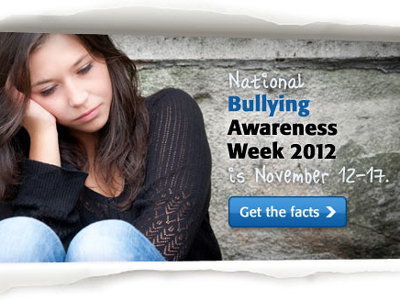As a parent, I have recently been reminded of the importance of keeping the lines of communication open in order to encourage kids to seek help and to share what is going on in their digital world. Through conversation, concerns, and checking the texting conversations of my son, I realized I needed to take action and appeal to our community of parents. I was able to search the internet and contact a parent directly about concerns I had regarding the social identity of a child. By working together, we were able to deal with an emerging situation quickly. It is essential that we collaborate as parents and teachers to establish the kind of support that children need as they manoeuvre through the business of "hanging out, messing around, and geeking out," (Thomas & Brown, 2011) on the Internet.
After watching Stuart Brown discuss the importance of fostering play in all humans in order to enrich our lives, I wonder if increasing our opportunities to engage in joyous times would combat the occurence of bullying? Bullies are typically lonely, hurting, or lacking confidence. Surely, the opportunity to experience play would replace the need to be mean.
As we embrace the new culture of learning (Thomas & Brown, 2011) we are making progress in teaching digital citizenship skills. We need to keep working hard to teach kids to be open, kind, and supportive of one another in the relationships they are building on and off-line.
References:
Brown, S (2008). Play is more than fun. Retrieved from: http://www.ted.com/talks/stuart_brown_says_play_is_more_than_fun_it_s_vital.html.
Kielburger, C. & M (2012). Make a pledge to take a stand against bullying. Calgary Herald (11/12/12).
Thomas,
D., & Brown, J.S. (2011). A new culture of learning: Cultivating the
imagination for a world of constant change, Seattle, WA: Create Space.

Thank you for your post on bullying..... It is real and relevant. By Parents staying connected to their kids and their social circles this will assist in dealing with issues and hopefully someday eliminating bullying altogether from our society.
ReplyDeleteMark S
Diana, your post connects on so many levels. You have shared your personal and teaching perspectives on the issue of bullying. By linking to national actions: Bullying Awareness Week and the Kielburgers; your blog adds information and depth for your readers. You have even woven in our course video content and the Thomas and Brown reference. When people draw together resources on critical issues, such as bullying, understanding is deepened. You have done that and I hope your blog has a wide audience. This kind of blogging can create change in our schools and in our society. Thank you.
ReplyDeleteI really appreciate your supportive comments, Carole. I think we need to keep repeating our anti-bullying messages over and over to keep them in the collective conscience of kids and adults. I did look at the Linda Yollis video about kids blogging. It was great, thanks!
ReplyDeleteDiana
Bullying is a tough topic to take on at any age and stage. I was involved in brainstorming to create a bullying awareness campaign at my College. Security services had engaged a number of people because they were getting reports of bullying and harassment type behaviours against students by their peers. Our school is not alone.
ReplyDeleteI think one of the challenges of bullying at the higher education level is that many students don't think it will happen. So many young people experience bullying when they are in public school and many think that when they get to higher education students will be more 'mature'. But lets face it, people don't grow-up overnight, if someone was a bully in June of Grade 12 they will probably still be a bully in September of first year university. One student wrote that "I was used to some [bullying] in school, in my home town, but I thought being based in London would mean less judgment because it’s so accepting of different cultures" (Karim).
One challenge is that it is hard to talk about bullying at university. The term itself seems a little juvenile - so how do you make it relevant to young adults? University of Calgary calls it 'personal harassment and bullying' and defines it as
harassment not based on any of the prohibited grounds of discrimination as stated in human rights legislation. It is generally abusive, insulting and degrading conduct for which there is no legitimate purpose. Personal harassment can take a variety of forms. Obvious bullying behaviours include public humiliation; personal insults and name-calling; persistent criticism; spreading malicious rumours; freezing out, ignoring or excluding; and constantly undervaluing effort. (http://www.ucalgary.ca/sexualharassment/node/41)
I think that we need to find a language to talk about bullying with young adults so that they realize the serious nature of the problem. I also think that we JUST NEED to talk about it. Students can't be ashamed they need to come forward and confront bullying. In my opinion bullies don't necessarily go away, they grow up too and just change their bullying behaviours.
Karim, N. 15 Jan. 2012. Bullying in Universities: It Exists. The Independent. Retrieved from: http://www.independent.co.uk/news/education/higher/bullying-in-universities-it-exists-1869267.html.
University of Calgary. Personal Harassment and Bullying. Retrieved from: http://www.ucalgary.ca/sexualharassment/node/41.